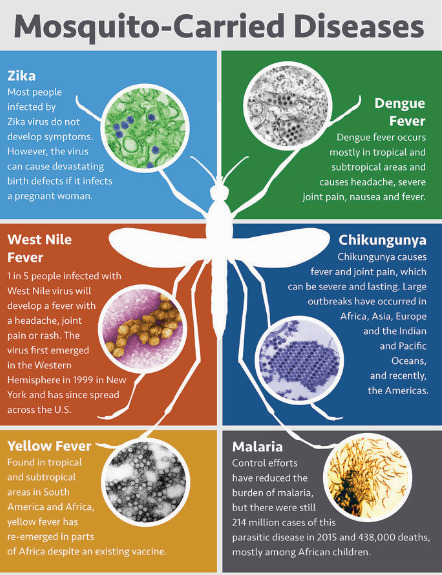
A Complete Guide to Dengue Fever: Symptoms, Treatment, and Prevention!
Dengue is a viral disease that is spread by mosquito bites and originated in tropical regions. The mosquitoes that act as vectors for dengue transmission belong to the genus Aedes. The dengue virus, which causes this disease, has four serotypes. Dengue can be caused by four different types of this virus. Children, adults, and elderly patients are all susceptible to it equally.
A mild form of the virus usually causes flu-like symptoms and a fever. However, severe dengue refers to a disease that causes more complications. For the last two decades, dengue has been one of the deadliest infectious diseases in South Asian countries. It is equally fatal for children, which makes this infection more dangerous.
Symptoms appear in Dengue Fever:
- Dengue fever has another name; breakbone fever. That truly depicts one of its most severe symptoms i-e severe pain in bones. Backaches, headaches, and pain in other parts of the body are most prevalent in dengue.
- The pain does not restrict to bones; rather the aching joints and painful muscles are also unpleasant experiences in dengue fever.
- Rashes appear on the body of the patient with dengue fever. Usually, these rashes start appearing after 3-4 days of the initial stage of infection, i.e., fever.
- Patients also suffer from nausea and vomiting, along with severe abdominal pain while contracting dengue fever.
- Flushing on the face, red eyes, and sore throat are other mild symptoms of dengue.
- People with dengue fever may have blood in their vomit, dark-colored stools showing bleeding in the digestive tract, nasal bleeding, and bleeding from the gums.
Is Dengue Treatable with Medicines?
As dengue fever is a viral disease that has more than one serotype, there has been no cure or vaccine (prevention) for it till now. Only supportive therapy is used to ease the symptoms of dengue fever. Early diagnosis and starting of supportive therapy can reduce the lethal outcomes of the disease.
Here are some measures to alleviate the symptoms;
- Increase fluid intake.
- Take rest
- Start taking antipyretic (fever-controlling) medicine like paracetamol.
In case of bleeding, vomiting, dehydration, and other severe complications, rushing to the hospital emergency room is recommended.
After recovery from dengue fever caused by a specific serotype, your body becomes resistant or immune to that specific serotype of the virus.
What are the Diagnostic Tests for Dengue?
Dengue fever infection is diagnosed and confirmed by different blood tests. The physical symptoms of dengue fever are quite confusing as they appear to be the same as many other infection signs. High-grade fever with nausea and vomiting may confuse dengue fever with malaria or typhoid fever.
People in the dengue endemic areas or if a patient travels to any dengue endemic areas in the last 10 days, showing symptoms of dengue fever have high chances of this infectious fever. So the doctor advised the patient to go for dengue diagnostic tests.
Blood tests to confirm the presence of the dengue virus and identify its serotype are recommended for dengue fever diagnosis.
Your platelet count is also monitored after the diagnosis of the dengue virus.
How can I prevent Dengue Fever?
To date, scientists are trying hard to make vaccines for the dengue virus. But as there is no vaccine for dengue fever, you cannot prevent it completely. But other precautionary measures are practiced to prevent dengue fever;
- Netting should be installed on your windows and doors to prevent mosquitoes in your home.
- Using mosquito repellent is recommended by health providers to prevent mosquito bites.
- Wear full sleeves shirts and trousers, especially when going for outdoor activities or while sleeping
- Do not collect water in open ponds, containers, or pools in your home to avoid mosquito breeding
- Avoid going in parks or any areas that have mosquitoes at dawn and dusk.
What are the Complications of Dengue Fever?
Dengue fever is also referred to as hemorrhagic fever as it causes multiple organ hemorrhages in the body. It may lead to liver problems and, in severe cases, cause dengue shock syndrome (due to a sudden drop in blood pressure).
It is potentially fatal due to bleeding (low platelets in the blood) and dangerously low blood pressure in the patient.
In children and elderly patients, immunity is usually low and other complications also arise due to dengue fever.
When to see a Doctor?
Dengue fever is not a simple infection. You need proper monitoring while you have this infection in your body. If you are facing, dark-colored stools, vomiting, low blood pressure, bleeding through the mouth and nose, difficulty in breathing, etc., you should immediately visit your doctor.
Conclusion:
Dengue is a viral fever. Its causative agent is transmitted through the mosquito bite. It is endemic to many topical countries in the world. Some people face mild symptoms of this infection, but in some cases, complications can also be seen, like low blood pressure, bleeding, vomiting, dehydration, and septic shock.
You can consult the best general physician for discussing the signs and symptoms of your dengue fever through Marham.
Apart from this, if you are interested to know more about What Are the Uses of Dermal Fillers Treatment? then visit our Health category.




